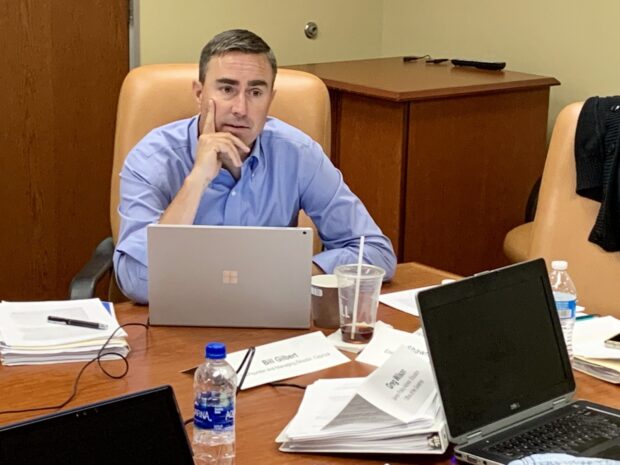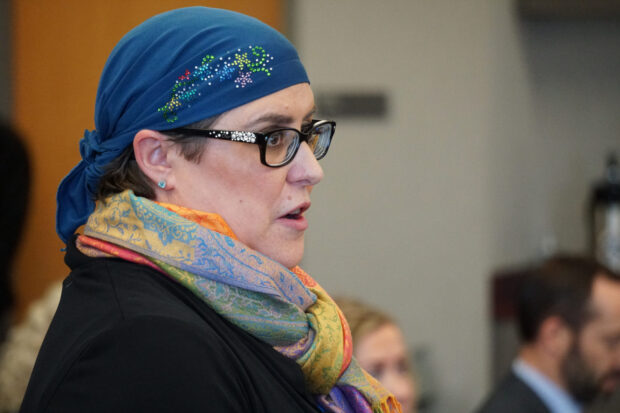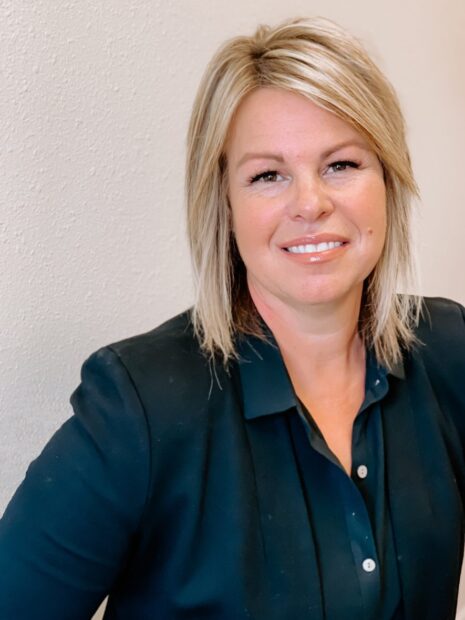Designed to reward high-performing teachers across the state, Idaho’s new master educator premiums largely benefited Treasure Valley teachers.
More than half of the $4.9 million will go to teachers in just two school districts: Boise and West Ada. And only 70 of the state’s 115 school districts received money from the new program.

“I don’t think the distribution of master educator premiums awards matches the distribution of our most effective master educators statewide,” said Bill Gilbert, a Boise businessman who co-chairs Gov. Brad Little’s K-12 education task force. Gilbert has criticized the fledgling master educator program — which promises $4,000-a-year bonuses for three years, but required veteran teachers to complete a detailed and time-consuming portfolio if they wanted a share of the money.
A Boise teachers’ union head says the new program is flawed. Teachers in Boise and West Ada received coaching on how to apply for the bonuses — and as a result, they got an early start compiling the paperwork they needed.
“I don’t think it’s reflective of the quality of teachers around the state,” Boise Education Association President Stephanie Myers said Tuesday. “Some opportunities were missed.”
By the numbers
In an effort to follow the dollars, Idaho Education News filed a public records request with the State Board of Education, which awarded the premiums earlier this month. The State Board provided a list of 1,223 premium recipients, broken down by school district and charter.
Some key numbers:
- Boise district teachers will receive 388 premiums, while West Ada teachers will receive 278 premiums. West Ada and Boise are Idaho’s two largest school districts, accounting for slightly more than a fifth of the state’s enrollment. But together, the districts will receive 54 percent of this year’s premiums.
- The 45 districts receiving no premiums generally serve smaller, rural communities.
- Only 18 charter school teachers received premiums. Put another way, charter schools represent about 8 percent of Idaho’s public school enrollment, but the schools received less than 2 percent of the master educator premiums.
(Click here for a full breakdown, by district and charter.)
The State Board has previously reported that 87 percent of applicants will receive a premium.
Teacher supports and ‘portfolio parties’
After the 2015 Legislature passed the master educator premium law, Boise and West Ada moved quickly.
Myers and district human resources administrator Nick Smith fanned out to Boise schools, explaining the new law to teachers. They encouraged teachers to get started early — completing the professional learning plans and compiling the data on student growth that the state would want to see in an application.

“We wanted to make sure they were set up to be able to apply, whether that was their choice or not,” Myers said.
In the year leading up to this July’s application deadline, the BEA organized 15 “portfolio parties,” where teachers could grab some pizza and a salad, get the latest news on the process, and collaborate with their colleagues. All told, 479 teachers attended the sessions — some more than once.
West Ada took a similar approach. Human resources chief Dave Roberts hit school faculty meetings, eventually speaking at about 80 percent of the district’s schools, district spokesman Eric Exline said.
On top of that, West Ada decided to require all teachers to complete a PLP, a portfolio requirement. The district built a template for teachers to use in gathering artifacts for their portfolios. At application seminars, teachers received basic training on the process, worked on their paperwork at a computer lab and gleaned advice from their colleagues, Exline said.
In Boise, the coaching continues. The BEA is holding sessions for teachers who did not get a premium, Myers said. Those appeals are due Oct. 31.
Reactions — and what happens next
State leaders stopped short of saying the master educator premium should be scrapped. But several expressed concerns about the plight of smaller schools.
“It’s difficult to draw conclusions from the breakdown of awards or to determine whether this program will be effective in retaining veteran teachers,” state superintendent Sherri Ybarra said Tuesday. “One of my goals in advocating higher pay for veteran teachers is to make it easier for teachers in small, rural schools to stay where they’ve gained their experience, rather than moving to larger, urban districts or neighboring states.”
Greg Wilson, Little’s education adviser, called teacher recruitment and retention a “statewide challenge,” particularly in rural Idaho and border communities. “The state of Idaho’s efforts should directly address those challenges.”

The State Board has taken no position on whether the premium program should continue, and probably won’t weigh in until the task force finishes its work this fall, board President Debbie Critchfield said Tuesday.
“We are focusing on changes to the administration of the program within the current statutory requirements,” said Critchfield, who co-chairs Little’s task force. “Clearly, some districts were able to provide more support for their teachers to apply for the MEP than others, and we have to find a way to address that.”
Ultimately, it will be up to the Legislature to decide the fate of the new program.
But some legislators — including House Education Committee Chairman Lance Clow, R-Twin Falls — have voiced concerns with the rollout.
And in a July task force meeting, Gilbert criticized the premise of expecting teachers to spend 80 or more hours completing the state’s application portfolio. “I would never run any company this way, and I understand there is a difference between business and education.”
Meanwhile, it appears that thousands of eligible teachers voted with their feet.
The State Board received about 1,400 portfolios this summer — but estimates that 8,000 to 10,000 teachers could have been eligible to apply.
Idaho Education News data analyst Randy Schrader contributed to this report.
